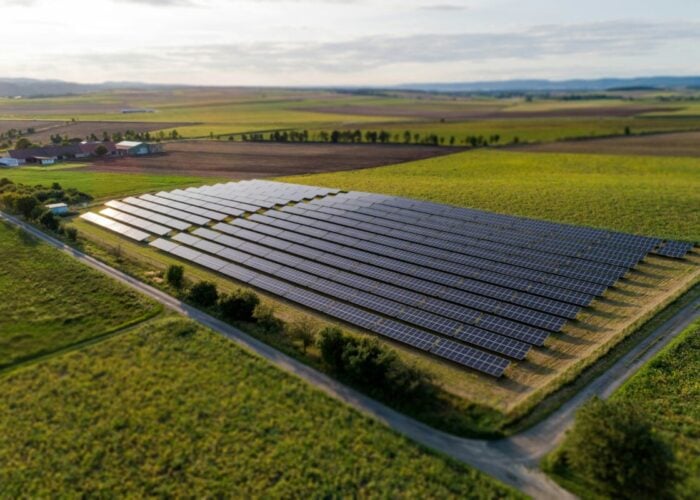A 40.4MW solar power plant fitted with an observatory deck and visitor centre has been completed by Mitsuuroku Green Energy and its partners in Chiba, near Tokyo, Japan.
According to Mitsuuroko Green Energy, the ground mounted installation spans 44 hectares, with an annual output of 42,000,000kWh, which the company claims is enough to power 11,500 homes. Mitsuuroku chose yesterday to make the announcement of the project’s completion, although it was actually finished at the beginning of July.
Try Premium for just $1
- Full premium access for the first month at only $1
- Converts to an annual rate after 30 days unless cancelled
- Cancel anytime during the trial period
Premium Benefits
- Expert industry analysis and interviews
- Digital access to PV Tech Power journal
- Exclusive event discounts
Or get the full Premium subscription right away
Or continue reading this article for free
The 'megasolar' plant was built by Mitsuuroko with Fuyo General Lease Co, which leases equipment and machinery as well as providing financial services, and Renova, the solar division of which specialises in developing solar farms of over 20MW capacity.
Sited on a former gravel quarry in the city of Futtsu, Mitsuuroku claims the PV plant is the largest on the Kanto Plain, the region which encompasses Tokyo and four regional prefectures, including Chiba. The company expressed its hope that the installation could serve an educational purpose, featuring as it does an observation deck and display readout which shows energy generation statistics and other information. The plant also features an educational exhibition on solar panels.
Yesterday, Japan’s Ministry of Economy, Trade and Industry (METI), the vast government institution responsible for implementation of renewable energy policies, announced that it could withdraw approval for 22 uncompleted large-scale solar projects, with hearings pending, while an August deadline looms for dozens more project developers to get their paperwork in order. Additionally, METI announced yesterday that projects with land rights and equipment accreditation in order, and therefore given the ministry’s full approval, now had to obey a six month deadline to complete their projects, a deadline period which METI determined should begin from 1 April 2014.
Extensively covered by PV Tech, the saga of the unbuilt projects has become something of a thorn in the side of the Japanese solar industry, with over 65GW of projects in some stage of approval by METI and only a small percentage completed so far.






